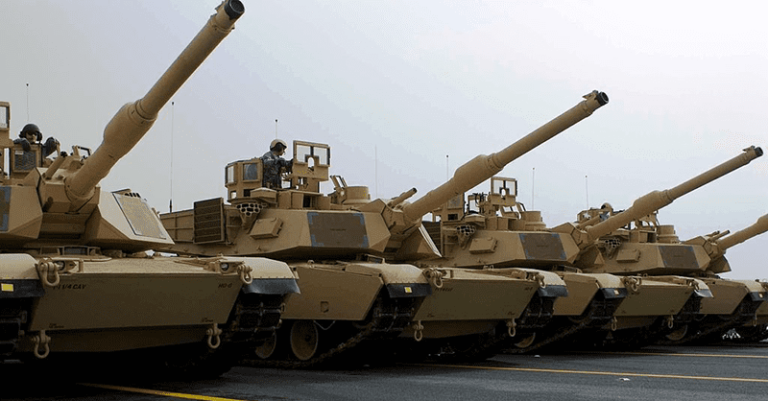
The Trump Administration is said to be pushing for establishing a Middle East Strategic Alliance (MESA). Discussions for the plan will be conducted during a summit tentatively scheduled for October with the Sunni Arab Gulf states in addition to Jordan and Egypt. The alliance has informally been called an “Arab NATO” that will involve “deeper cooperation between the countries on missile defense, military training, counter-terrorism and other issues such as strengthening regional economic and diplomatic ties.” Needless to say, the purported pact is for the purpose of challenging Iran which most countries involved consider to be a threat to security and stability in the Middle East.
But considering the president’s treatment of the existing North Atlantic Treaty Organization and the state of affairs between putative members in the Gulf, this talk shows both an inability to learn from the past and a desire to continually beat a dead horse.
First, the president has never been enamored of alliances, least of all NATO. His strategy and approach are only transactional, and he sees institutional arrangements as mere impediments to realizing what he wants. He thrives on one-on-one meetings and grandiose, albeit empty, gestures. His July 10 meeting with the NATO partners in Brussels exposed his lack of knowledge of the intricacies of building an alliance, let along helping it flourish. His behavior there resulted in weakening NATO just as he was to meet Russian President Vladimir Putin who has spent his professional life trying to tear western defenses down. Thus, Arab allies who think that he can be reliable in helping to establish an erstwhile organization similar to the pan-Atlantic one would do well to disabuse themselves of that myth.
Second, calling for setting up a NATO-like alliance in the Arab world egregiously ignores the existence of the current dispute pitting members of the Gulf Cooperation Council (GCC) and Egypt against Qatar. In an atmosphere of a blockade and forced isolation of Qatar by its immediate neighbors, it is hard to see how an article for common defense, akin to NATO’s Article 5––which stipulates that an attack on any member is an attack on all––can be agreed or put into effect. Why, indeed, would Saudi Arabia come to Qatar’s aid if it were attacked while the Kingdom is working on physically separating itself from the Qatari peninsula by building a canal on the common border? By the same token, why would the United Arab Emirates defend Qatar if it was the state to have sponsored in June 2017 the hacking of Qatar’s News Agency and published information detrimental to the GCC common cause?
Third, the call misses the fact that the Sultanate of Oman is very much unlikely to be party to an anti-Iran pact; not because it approves of Iran’s malign activities but because it has developed a strategy of opening up to the Islamic Republic and has mediated between it and other countries, most notably the United States. Similarly, Kuwait, which has made mediation in GCC affairs a pillar of its foreign policy to assure common GCC interests, simultaneously shies away from alignment in regional affairs, least of all against Iran. With three GCC states––Qatar, Oman, and Kuwait––being either unacceptable by others or missing from the putative Sunni alliance, establishing a unified entente may not be such an easy task.
Finally, how can the NATO-like alliance be established if President Trump simply cannot be trusted to stay on message regarding the Islamic Republic. The president has just radically changed his declared hardline position on Iran, apparently without consulting with his lieutenants, the Departments of State and Defense, or the National Security Council. During a joint news conference with visiting Italian Prime Minister Giuseppe Conti on July 30, the president said that he will be ready to meet with Iranian leaders anytime, without preconditions. Only a few days prior, he disdainfully advised Iranian President Hassan Rouhani in a tweet to be cautious in dealing with the United States and threatened him with dire consequences. The president has also been proud to have withdrawn the United States from the Joint Comprehensive Plan of Action and has directed his administration to toughen earlier sanctions and levy new ones on the Islamic Republic, as well as punish countries and foreign companies dealing with it.
By making this announcement, the president may have vacated all talk of setting up a NATO-like security alliance in the Middle East. Saudi Arabia and the UAE are most loathe to discourse that even remotely normalizes Iran or goes in the direction of accommodating it. Despite former President Barack Obama’s commitment to the security of America’s GCC allies and his permissive weapons sales to them, he quickly lost favor with them when his administration began to peacefully negotiate with Iran over its nuclear program. That negotiation led to the JCPOA which was the best guarantee to their physical safety and security. They, however, still considered him to have abandoned them. Now, and even if Trump changes his mind once more and re-affirms his previous position on Iran, it is unwise for them to put their full trust in him again on this matter.

